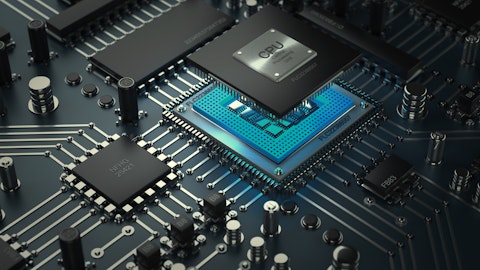While the short-term future looks challenging, the deal between Gardner Denver (GDI) and Ingersoll Rand’s industrial businesses to create a combined company called Ingersoll Rand (NYSE:IR) has the potential for substantial multi-year value creation, according to a thesis published on Value Investors Club.
The upside will come from synergy execution as well as from an improvement in the underlying margin structure of an under-managed Ingersoll Rand compression business. Over time, the company’s management is believed to dispose the non-core, lower margin, and more volatile parts of the portfolio. In the coming few years, the new IR is expected to be a leading industrial business with high (29%+) EBITDA margins, minimal cap. ex (2% of sales), and deriving close to 50% of its revenue from aftermarket, according to the thesis by Hamilton1757.

Suwin/Shutterstock.com
The IR deal offers things to GDI. Firstly, the company will be able to capture a portion of the NPV of future synergies inherent in combining the #2 and #3 compression businesses globally. Secondly, the GDI management team will be able to execute the margin expansion playbook they ran on industrial assets on under-earning IR industrial assets. Thirdly, it considerably reduced the amount of direct exposure to upstream oil and gas, thus enabling the company’s fate to be more directly aligned with their own execution capabilities.
The new company will have four segments. Among all segments industrial technologies & services is the most important one that will house the legacy GDI industrial business and the IR compression business. It will also retain the midstream and downstream business of GDI’s former energy segment as well as IR’s low margin power tools business. All $250 million of the anticipated cost synergies will flow through this segment, according to the company.
No synergies are expected in the precision and science technologies segment, and electric cars, power tools, upstream energy – all are in separate divisions – are expected to be divested. All of their businesses will experience pressure in the near term. The stock is expected to have substantial volatility. For the longer term, the bigger risk is that the Vicente Reynal and team are unable to integrate the IR assets smoothly and unlock the value embedded above. If IR integration goes poorly, this will be an overly complicated, overleveraged and overvalued industrial. Equity will materially underperform its peers.
If look at hedge funds’ love for Ingersoll Rand (NYSE:IR), IR isn’t among the 30 most popular stocks among hedge funds. Ingersoll was in 31 funds’ portfolios at the end of June, while there were 33 funds in our database with IR holdings at the end of March.
Disclosure: None.





